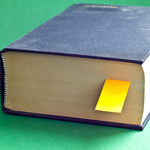It is probably fair to say that the when Dr. Bob and Bill W met for the first time, they did not have even the faintest of idea as to the impact their mission would have on history. Two newly sober drunks just trying to live a life free from alcohol, who realized that the only way to keep what they had was to give it away. To help others experience the gift through fellowship, community and all that is possible free from the fog of inebriation.
From small beginnings, and a serious learning curve, a small group of people would go on to lay the framework for what would become a lifesaving gift for not just alcoholics, but society. Their fellowship was free from monetary incentives or prestige, designed to function in relative obscurity for decades before an invitation into the light by the ever-changing culture. The program was breaking down the stigma that has accompanied addiction for time immemorial, forcing the world to see that alcoholics and addicts were not morally bankrupt individuals, unable to control their selfish wants and desires. But, rather, millions of people who were sick, needed treatment and compassion. Not jail cells, sanatoriums or being castaway as social pariahs.
Over the last 82 years, the program of Alcoholics Anonymous (AA) has undergone several changes in how meetings are conducted, but one thing has remained relatively unchanged—the 12 steps and the book that explains how to work them. Wording has changed, but the traditions and principles have held true. The program could work for anything that makes one’s life unmanageable. As testament to the power of the program, you can remove the word alcohol and replace it with anything that you are powerless over. And if you work the program honestly, recovery is possible.
The Big Book
If you have ever attended a meeting of AA, then you probably noticed a number of texts sitting up on the front table. Books approved by the Alcoholics Anonymous World Services (AAWS), deemed to be beneficial in the effort to stay sober—no matter what. The most important book happens to be the biggest, hence the working manuscripts moniker the “Big Book.” It includes within the writing instructions for working the program with the help of others, followed by several personal stories that recovering alcoholics can relate to.
One the major focal points of the program is the idea that while we all have different stories, inside each one can be found similarities. Powerlessness, unmanageability, surrender, acceptance and resolve. All of which can be found inside the stories in The Big Book. Like many other books that have served as spiritual compasses for humanity, the basic text of AA has helped people climb out of the abysmal depths of despair into the light of the spirit. Giving energy to those who have and are making the journey to help others out of the lonely cave of addiction.
The first edition of Alcoholics Anonymous: The Story of How Many Thousands of Men and Women Have Recovered from Alcoholism (called The Big Book because of how thick the pages were) was published in 1939, written mainly by Bill Wilson. Much like the other spiritual texts of antiquity, The Big Book has outsold most writings to ever grace a printing press. To date, the basic text has sold over 30 million copies, according to the Akron Beacon Journal, and has served as footprint for numerous organizations whose aim is to help people recover from debilitating spiritual crises. The Library of Congress deemed the book one of 88 “Books that Shaped America.” Some twenty-years after the creation of AA the American Medical Association (AMA) declared alcoholism a medical illness, so it was fitting when the thirty-millionth copy of The Big Book was presented to the AMA.
But, What Happened to The Original Manuscript?
Any Big Book, no matter the edition has the power to save lives, but who could not help but wonder where the original manuscript landed after 78 years. It turns out that very question is the subject of a lawsuit filed on Monday by AAWS. The organization is suing the auction house, Roberts and QuestRoyal Fine Art, a New York gallery, who have plans to auction the manuscript on June 8th, Reuters reports. The manuscript was intended to be gifted to AAWS but was purchased in 2007 for $992,000 at Sotheby’s just three months before by one Ken Roberts. And according to the plaintiff, Roberts does not have the right to consign the manuscript because it had been gifted to AA in 1979.
The manuscript is an original, historical document of unique importance to AAWS, and undeniably is a critical piece of its history,” and the defendants “are wrongfully detaining the manuscript for their own pecuniary gain,” the complaint said.
For more information on the case: Alcoholics Anonymous World Services Inc. v Roberts et al, New York State Supreme Court, New York County, No. 652676/2017.
Celebration of Founder’s Day
This court case may go on for quite a while; however, it is important to remember that Alcoholics Anonymous Founders’ Day 2017 will be celebrated in Akron, Ohio, on June 9, 10, and 11th. You may want to consider joining in the anniversary festivities.



